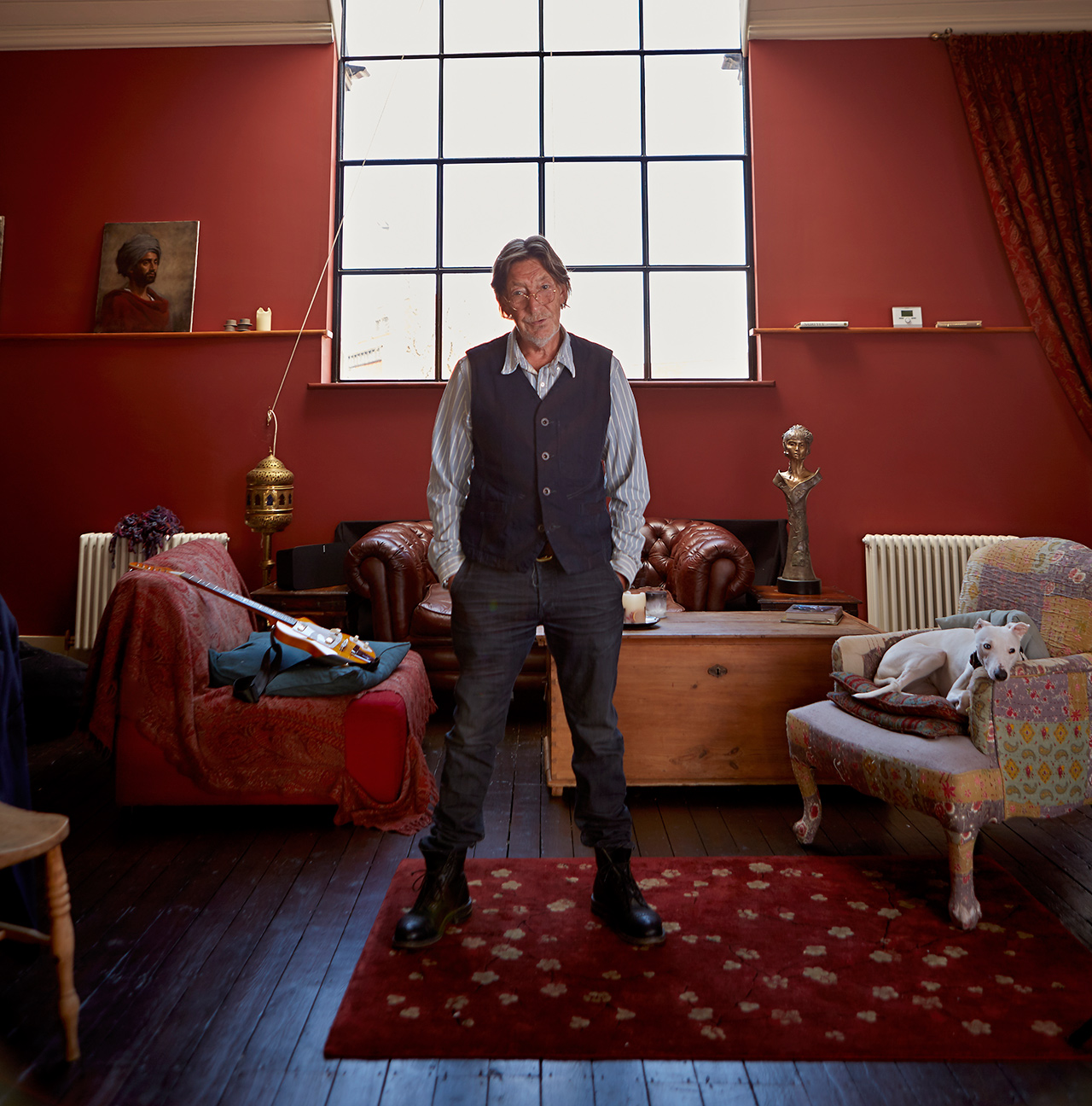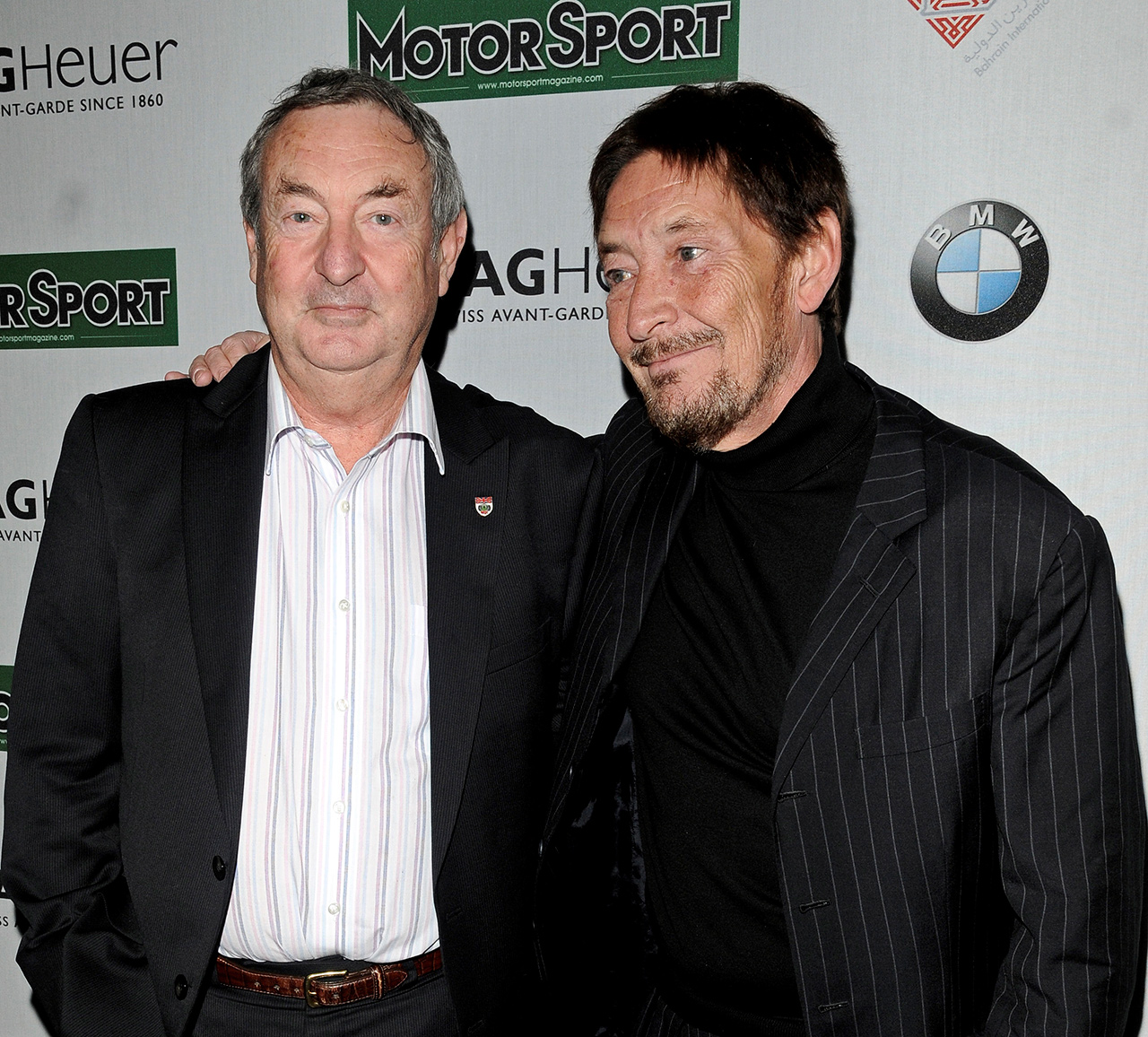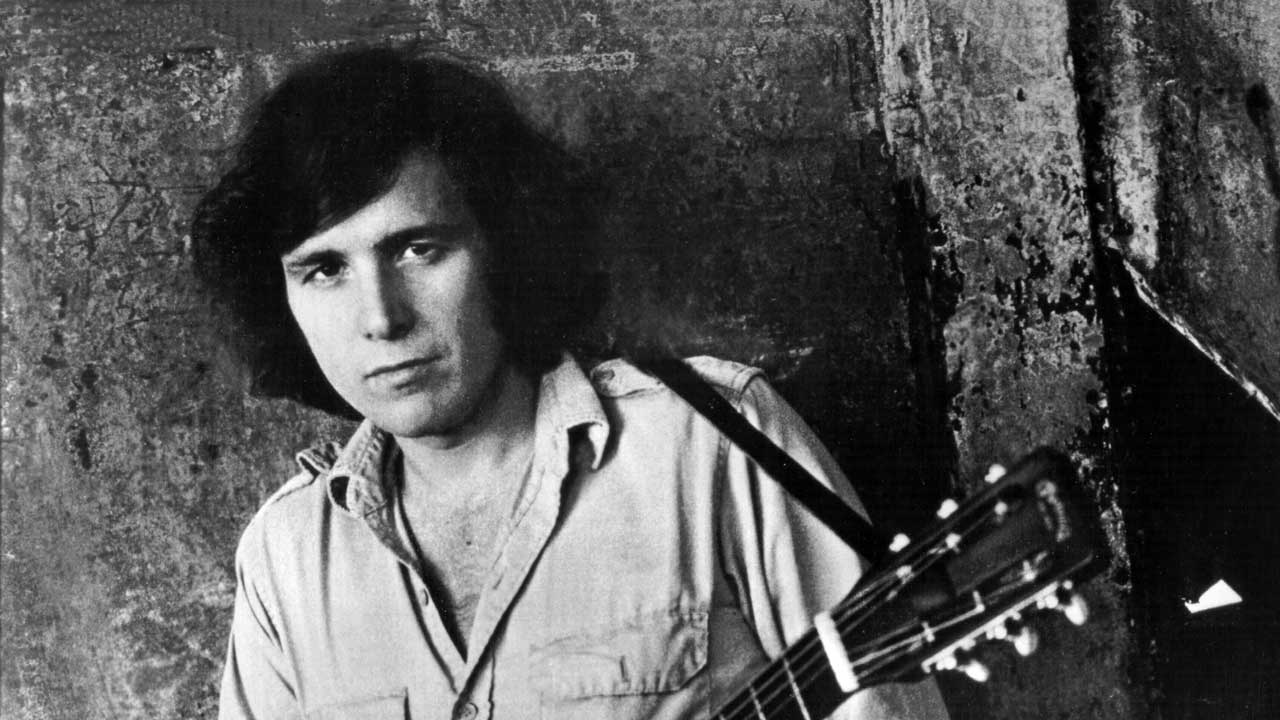How Chris Rea became rock's ultimate survivor
From industry sharks to cancer and strokes, nothing can sink Chris Rea. Rock’s great survivor looks on the bright side of life

Few experiences in life are more humiliating than spluttering up the driveway of Chris Rea’s country pile in a decrepit Seat Altea. The veteran bluesman’s home is a trove of automobile porn: a gleaming Ferrari, a pristine Caterham 620, racing overalls, press clippings of Rea himself burning up the track. It’s becoming apparent why he wrote Road Songs For Lovers, his new semi-concept album, on which he admits that he finds peace only behind the wheel.
“I love it,” he says with a twinkle, that burnished face crinkling into a walnut. “I always have. I don’t know why. How do you explain love?”
Rea looks good, all things considered. Last week he had an MRI scan, the latest two-step in the 66-year-old’s long-standing dance with abdominal cancer. It turns out there are other ailments afoot.
“I had a stroke in the autumn,” he reveals. “Boy, that was a big shock. When I first got home I couldn’t play slide guitar. It was horrific. Very scary moment. I couldn’t play F major 7th. I got it into my head that my perception of pitch had gone with the stroke. And it took a lot of convincing from people saying there’s nothing wrong with what you’re playing. I’m getting it back now, hopefully, for the tour.”
You’d defy anyone to detect an issue on Road Songs. Rea’s supple, dextrous slide work is the fairy dust on these bluesy songs of open-road escapism, his desert-dry vocal wrapping them in parchment. He recorded his parts here, in his home studio.
“They have to drag albums off me,” he says. “If you’re not careful, you just polish. And that’s a weakness of mine. Because I don’t have a big ego. I don’t think I’m any good, really. I’d love to play something and think: ‘Yep, that’s the best thing I’ve ever done,” but I never do.”

He’s proud of these songs, though. Apart from the sinister trudge of Last Train, it’s easy to cast this album as a love letter to cars, the second great passion of Rea’s when he was younger.
Sign up below to get the latest from Classic Rock, plus exclusive special offers, direct to your inbox!
“You’re a little boy in Middlesbrough,” he reflects. “There are no colours, nothing glamorous. Everything is black and white. Then you’re stood with your dad and a German racing car goes past you at 180 miles an hour. Even if it did that now it would be incredible. Imagine the relative perception in 1956.
“They’re not an indulgence,” he stresses of his collection of cars. “I’m a proper racing driver. I’ve got an international C licence. I race a 1957 Morris 1000 police car. It’s not exactly a Lamborghini, is it? But I adore it. I’m an anorak. It’s about the engine, all that. It’s not about status. The Caterham will be my last car. It’s the heroin of car addicts. Nick Mason [Pink Floyd drummer and fellow petrolhead] once said to me: ‘You don’t have to take drugs to be an addict,’ y’know?”
Aren’t cars stereotypical things for a rock star to write songs about?
“I’m not a rock star!” Rea puffs, indignant. “There have been moments when I wish I was. When I see a Ferrari 250 GTO and it’s going for twenty-five million pounds, for about ten seconds I wish I was a rock star. It’s very difficult to be a rock star. When I’ve met people who are rock stars, they’re focused like you wouldn’t believe. They’re bothered about their hair. They’re constantly having something done to their face. How you look and how you sound is everything. It’s narcissistic. I’m not.”
Fame has always repelled him, Rea reminds me. Digging his heels in all the way, his reluctant ascent began with his 1978 hit Fool (If You Think It’s Over), which he despised, and when the real circus began he was in too deep to walk away. “I signed a record contract that was the only one available to me at the time. I signed with the wrong record company for what I wanted to do, and I’ve been playing catch-up ever since.
“When I did The Old Grey Whistle Test, the other band that was on with me was Dire Straits. I knew that day that that was what I should be doing. But it was too late. If Mark Knopfler had asked me to join them that night, I would have. And I would have gone to court with my record company. But I don’t think my record company would have let me go. They’d have let me starve rather than let me go. Because somebody in Los Angeles had told the head of my record company: ‘Never let that boy go.’ It was quite sinister when you look back. “When someone said: ‘If you’re doing that TV gig, you’ve got to wear a leather jacket,’ I should have just said no to all that. But then I mightn’t have got this far. You’re constantly juggling what you want to do and what you have to do.
“We had all this when I went back to the blues. They all shit themselves. What they didn’t realise is that Chris Rea fans like that. That’s the bit they like, better than the poppier side or trying to have a hit single. One German journalist for a rock magazine said: ‘The best thing you can ever see is a Chris Rea sound-check, because they’re just grooving and playing.’ They used to have to get us off stage: ‘For fuck’s sake, we’re opening the doors.’ We’re playing away, happy as pigs in shit – because we love it.”
Last time we met, you said that the fallout from fame left you bad-tempered and aggressive.
“Terribly aggressive. Y’know, I was four times a week at the gym and I was sixteen and a half stone. And fearful and paranoid that some twat was gonna take me back to the old pop record days. I became horrendously paranoid. There’s nothing to be paranoid about any more.”
Aren’t you wary of Road Songs becoming a hit and the whole cycle starting again?
- Chris Rea: Derek Trucks should be a household name
- An Interview With The Straight-Talking, No-F**ks-Given Chris Rea
- The TeamRock+ Singles Club
- Chris Rea - Road Songs For Lovers album review
“I don’t think we are. All through the spring I was saying to my manager: ‘John, promise me this. When it doesn’t happen, just stay calm. I don’t want any fucking getting drunk and having fights.’
“One of the things I’ve noticed is that I don’t think people care if you bring a new record out or not. When you go to Harley Street, all the doctors’ names are on brass plates, and underneath it tells you what they do. Well, that’s what we are. You’ve got ‘Mark Knopfler: Money For Nothing, Sultans Of Swing’. Doesn’t matter what else he does, that’s his brass plate. ‘Chris Rea: Road To Hell, On The Beach, Driving Home For Christmas’. If I made a triple album of the world’s best-ever music, better than Beethoven, they’d still want On The Beach.”
Does that realisation hurt famous musicians?
“It hurts accordingly to the size of your ego. The bigger the ego, the bigger the hurt. We’re all brass plates. I mean, Elton John brought a fabulous album out last year with the American producer [T Bone Burnett]. There won’t be one person at the next twenty thousand Elton John concerts that will wait for a song off that album. You’ve also got people who get the brass plate and put it in neon and do ‘best of’ tours. In fact, in Germany, the venue they’ll put you in and the type of money they’ll put up is totally dependent on what songs you’re contractually going to play. If you’re going to do all your hits, they’ll put you in the big arena in Dortmund; if not, they’ll put you in a club down the road in Cologne.”
Given Rea’s troubled relationship with paydirt, perhaps the most fascinating song on the new album is Money, a rare deviation from the car theme, on which New Orleans brass jousts with his grizzled commentary on modern avarice.
“That was me listening to the money programme [Money Box] on Radio Four,” he explains. “Everyone sees their politics from where they stand financially. That’s why everyone’s worried about Jeremy Corbyn, because he doesn’t have any financial desires, so he thinks you can live on thruppence. But when he wins… And he is going to win. There’s no doubt about it. I’ve got a bet. I’ve got sixteen to one. Him and his chancellor will decide how much money they think you need, everything else will go to the government.”
That’s bad news for millionaire musicians like you, isn’t it?
“No, because I think he’s right. A lot of people are like: ‘Fucking hell, Chris, don’t tell me you’re a Corbyn fan. For fuck’s sake, don’t tell anyone!’ I’ve written a song about him. It’s called What’s So Wrong With A Man Who Tells The Truth? Because he’s standing there, even his own party are laughing at him, and I thought: ‘You’re all laughing at your own peril.’ And yes, in the old way, Corbyn is useless. Because he says the wrong things. But the young people have had enough.
“Because of my health I’m constantly in some of these hospitals. And we need more money. Of course, Newsnight will say: ‘Yeah, but where’s he gonna get it from?’ Tax. It’s as simple as that. One of my musician friends said: ‘Well, we’re all going to leave the country.’ And I think the people who are left behind will say: ‘Good riddance.’”

Rea reckons Road Songs, released on his Jazzee Blue label, will cover his expenses but perhaps not much more.
“Well, touch wood, it’s not costing me money. But ten years with Jazzee Blue, you find out some of the things you just can’t get if you’re not with a big record company. There’d just be this mystery of why you couldn’t get in that magazine. It’s even happening now with gigs. Trying to get on a gig that Live Nation don’t own is extremely difficult. You find yourself not being able to get a venue. You don’t know why. The men at the top are still the men at the top. Most bands have become casualties of the business, but at the top of the business they’re on the same money as they always were. That bit hasn’t changed.”
How do you feel about other developments in show business?
“This is probably the only interview in the world this week where it’s you and me sat talking to each other,” says Rea. “Nowadays they’ll send emails and just say: ‘Answer the following questions.’ It saves money.
“One of my big shocks lately is how people – even in the business – listen to music. It’s frightening. When I first started, there was a man who went round Warners’ offices all day long, every day, resetting people’s hi-fis and playback systems. Now they’re all listening to it on a PC. And modern music has changed because of that. Young kids make music for a PC. So they won’t have a big, fat bass, because you can’t hear it on a PC. They’ll make a more pointed, rhythmic bass, and it’ll be quantised. And that’s modern music. One of the final milestones for me was Ed Sheeran at Glastonbury this year,” he continues. “Because people were saying that he was using a little black box, and he didn’t have a band. But the main point of that was nobody cared.
“We have terrible trouble when we tour. The last four people who’ve played the venue you’ve arrived into are saying: ‘Well, we didn’t have any trouble [with the sound].’ And you know that’s because it was all on hard disc. Of course you don’t have trouble, because you don’t have a buzzing 1962 Stratocaster!”
And yet, for all the dodgy live sound and brass-plate audiences, Rea says he’s raring to take Road Songs into its natural habitat when he goes out on his European tour in November.
“Touring is like a holiday,” he says. “And when we do Germany and England on the tour there’ll be an album that comes out of that. I’m already onto my next one now. My problem is it’s almost like having a form of autism. I seriously think it’s quite close, creativity. I get up this morning, quarter to seven. I’ve got to write something. I’m useless at doing nothing.”
Somehow, you suspect Chris Rea is the kind of musician who will never be done – unless his hand is forced by factors beyond his control. Again, where a ‘proper’ rock star would shut down any such enquiries, Rea is an open book on the subject of his gathering health issues.
“The medical is the leveller when you’ve been as ill as me, with permanent damage,” he says. “And it has a lot of effects that I wish it didn’t. But it does. Y’know, there are reasons why I can’t go to the Himalayas. And I’d love to. But the way my body is now, digestion-wise, I couldn’t go up there.”
He brightens. “I’m happy to be here,” he says. “I really am. And y’know, if you lose your pancreas and you’re on morphine for sixteen weeks in hospital, then you can say: ‘What’s wrong with me singing the blues?’”
Road Songs For Lovers is out now via Jazzee Blue/BMG.
Henry Yates has been a freelance journalist since 2002 and written about music for titles including The Guardian, The Telegraph, NME, Classic Rock, Guitarist, Total Guitar and Metal Hammer. He is the author of Walter Trout's official biography, Rescued From Reality, a music pundit on Times Radio and BBC TV, and an interviewer who has spoken to Brian May, Jimmy Page, Ozzy Osbourne, Ronnie Wood, Dave Grohl, Marilyn Manson, Kiefer Sutherland and many more.

